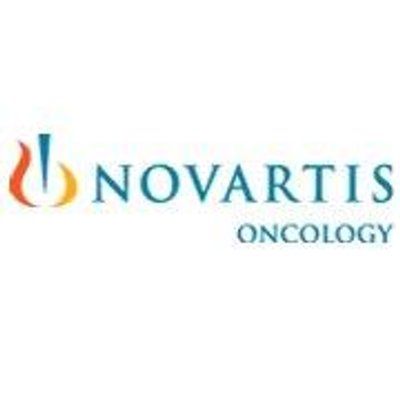预约演示
更新于:2025-05-07
Novartis Korea Ltd.
更新于:2025-05-07
概览
标签
其他疾病
肿瘤
免疫系统疾病
小分子化药
单克隆抗体
单链Fv片段抗体
疾病领域得分
一眼洞穿机构专注的疾病领域
暂无数据
技术平台
公司药物应用最多的技术
暂无数据
靶点
公司最常开发的靶点
暂无数据
| 排名前五的药物类型 | 数量 |
|---|---|
| 小分子化药 | 11 |
| 单克隆抗体 | 2 |
| 单链Fv片段抗体 | 1 |
关联
17
项与 Novartis Korea Ltd. 相关的药物靶点 |
作用机制 CFB抑制剂 |
最高研发阶段批准上市 |
首次获批国家/地区 美国 |
首次获批日期2023-12-05 |
作用机制 Bcr-Abl抑制剂 [+1] |
原研机构 |
在研适应症 |
最高研发阶段批准上市 |
首次获批国家/地区 美国 |
首次获批日期2021-10-29 |
靶点 |
作用机制 c-Met抑制剂 |
原研机构 |
最高研发阶段批准上市 |
首次获批国家/地区 美国 |
首次获批日期2020-05-06 |
10
项与 Novartis Korea Ltd. 相关的临床试验NCT04563988
Factors for Predicting Severe Asthma Exacerbators in Adult Asthmatics: A Real Word- Effectiveness Study
This study is a single-center, retrospective, cross-sectional study. It plan to investigate the predictors for asthma exacerbation in long term follow up real world management with analyzing big data of electronic medical records (EMR).
开始日期2018-10-22 |
申办/合作机构  Ajou University Ajou University [+1] |
NCT02834663
Prospective, Single-center, Six-month Study of Intravitreal Ranibizumab for Macular Edema With Nonproliferative Diabetic Retinopathy: Effects on Microaneurysm Turnover and Non-perfused Retinal Area
Title of study:
Effects of Ranibizumab to delay or regression non-proliferative diabetic retinopathy(NPDR) with DME assessed by microaneurysm changes: A pilot study Objectives Diabetic retinopathy (DR) is a major cause of visual impairment. Anti-vascular endothelial growth factors have demonstrated therapeutic benefits in diabetic macular edema (DME). We aimed to prospectively analyze the effects of early intensive treatment using intravitreal ranibizumab (IVR) injections in nonproliferative diabetic retinopathy patients with macular edema.
Primary objective:
To investigate other efficacy endpoints including other visual acuity, anatomical change in mild-to-moderate NPDR with DME after intravitreal Ranibizumab injection from baseline through 6 months after treatment.
Secondary objectives:
To compare microvascular changes assessed by microaneurysm counts and perifoveal non-perfusion area changes and safty in eyes of mild-to-moderate NPDR with DME after intravitreal Ranibizumab injection from baseline through 6 months after treatment.
Effects of Ranibizumab to delay or regression non-proliferative diabetic retinopathy(NPDR) with DME assessed by microaneurysm changes: A pilot study Objectives Diabetic retinopathy (DR) is a major cause of visual impairment. Anti-vascular endothelial growth factors have demonstrated therapeutic benefits in diabetic macular edema (DME). We aimed to prospectively analyze the effects of early intensive treatment using intravitreal ranibizumab (IVR) injections in nonproliferative diabetic retinopathy patients with macular edema.
Primary objective:
To investigate other efficacy endpoints including other visual acuity, anatomical change in mild-to-moderate NPDR with DME after intravitreal Ranibizumab injection from baseline through 6 months after treatment.
Secondary objectives:
To compare microvascular changes assessed by microaneurysm counts and perifoveal non-perfusion area changes and safty in eyes of mild-to-moderate NPDR with DME after intravitreal Ranibizumab injection from baseline through 6 months after treatment.
开始日期2016-08-01 |
申办/合作机构 |
NCT02427295
Long-term (up to 3 Years) Clinical and Hormonal Outcomes in Acromegalic Patients With Treated Surgery With or Without Long Acting Somatostatin Analogues: Open-labeled, Prospective, Parallel Group Study
Long-term (up to 3 years) clinical and hormonal outcomes in acromegalic patients with treated surgery with or without long acting somatostatin analogues.
开始日期2014-03-01 |
申办/合作机构  Asan Medical Center Asan Medical Center [+1] |
100 项与 Novartis Korea Ltd. 相关的临床结果
登录后查看更多信息
0 项与 Novartis Korea Ltd. 相关的专利(医药)
登录后查看更多信息
28
项与 Novartis Korea Ltd. 相关的文献(医药)2024-11-01·Ophthalmology and Therapy
Predictors of Disease Activity After Anti-VEGF Treatment for Neovascular Age-Related Macular Degeneration Using Real-World Data from the PROOF Study
Article
作者: Cho, Heeyoon ; Kim, Jeonghee ; Jo, Young Joon ; Kang, Se Woong ; Chin, Hee Seung ; Byon, Iksoo ; Kim, Yu Cheol ; Kim, Jae Hui ; Woo, Se Joon ; Sagong, Min ; Chae, Jae Eun ; Lee, Young Hoon
2023-01-01·Therapeutic Advances in Musculoskeletal Disease
The predictability of ASDAS on drug survival in patients with ankylosing spondylitis on biologic therapy: data from the KOBIO registry
Article
作者: Shin, Kichul ; Kim, Taeeun ; Kim, Jinhyun ; Lee, Sun Kyung ; Kim, Min Jung ; Oh, Geun Young
2022-06-30·Blood Research
Safety and efficacy of nilotinib in adult patients with chronic myeloid leukemia: a post-marketing surveillance study in Korea
Article
作者: Yuh, Young Jin ; Cheong, June-Won ; Lim, Sung-Nam ; Son, Sang Kyun ; Chang, Myung Hee ; Kim, Min Kyoung ; Jung, Chul Won ; Lee, Won Sik ; Park, Jinny ; Kim, Hawk ; Ryoo, Hun-Mo ; Lee, Seryeon ; Cho, Su-Hee ; Kim, Inho ; Park, Moo-Rim ; Choi, Chul Won ; Kim, Byung Soo ; Ahn, Seo-Yeon ; Lee, Ho Sup ; Kim, Dong-Wook ; Lee, Gyu Hyung ; Lee, Jae Hoon ; Seong, Chu Myoung ; Kim, Hoon-Gu ; Joo, Inkyung ; Oh, Suk-Joong ; Kwon, Jihyun ; Jo, Deog-Yeon ; Kim, Sung-Hyun ; Zang, Dae Young
1
项与 Novartis Korea Ltd. 相关的新闻(医药)2018-05-03
Sam Isaly has finally stepped down from his position as a managing member OrbiMed more than four months after he was accused of sexual harassment. Sexual harassment allegations have been in the forefront of the news cycles for months as the #MeToo movement gained traction.
Biotech Hedge Fund Titan Sam Isaly has
finally stepped down
from his position as a managing member of the firm more than four months after he was accused of sexual harassment and creating a toxic working environment at
OrbiMed Advisors
.
OrbiMed announced Isaly’s move late last Friday, more than four months after Isaly and OrbiMed
initially announced he would step down
. In December, two days after a scathing Stat News report detailed the
allegations against Isaly
, OrbiMed announced that the long-time hedge fund investor would step down from his position. In making its announcement last week, the investment firm did not mention the accusations against Isaly, only called it part of “ongoing succession planning.” OrbiMed said Isaly has transferred his controlling interest in the company but did not disclose details of the deal.
Isaly, the company said, will continue to practice his investment skills as chief investment officer of the Isaly Family Office, subject to his obligations to OrbiMed. Isaly, the statement continues, “looks forward to many more years of investing excellence.”
In December, five people leveled charges against the 72-year-old Isaly and claimed he “wantonly demeaned and verbally abused female employees.” According to the initial report, Isaly made lewd comments to female employees, subjected them to pornographic images and made “pervasive sexist comments.” The allegations against Isaly were first reported by Stat News. Despite Isaly’s denial of the allegations, which were initially reported on Dec. 6, two days later OrbiMed announced Isaly’s intent to step down.
Sexual harassment allegations, such as those against Isaly, have been in the forefront of the news cycles for months as the #MeToo movement gained traction. The movement shined a spotlight on allegations of bad behavior in many industries, including the pharma and biotech industries. In the pharma sector, things got rolling in 2016 following the J.P. Morgan Healthcare Conference in San Francisco. An industry party that included a number of hired women in short cocktail dresses were hired to mingle with the mostly-male attendees. Some of the few female biotech executives who attended expressed their outrage, which has led to a number of initiatives to close the gender gap on leadership teams and boards of directors in the industry. Despite the exposure of a concern within the industry, that has not quelled incidents of sexual harassment.
Last month a
Sanofi
executive who was
dismissed following allegations
of sexual harassment filed a lawsuit against the French biotech company for an unfair dismissal. Jean-Marc Podvin, who was once Sanofi’s director of press relations, has already lost two unfair dismissal lawsuits in the French courts,
Bloomberg
reported. Podvin was accused of a variety of harassing behaviors, including allegedly exposing his genitalia to a female employee. He was also accused of sexting female assistants.
In December, just prior to the breaking of the news about Isaly, two
Korea-based business entities
of pharma giants
Novartis
and
Pfizer
became embroiled in sexual harassment allegations. A male employee at Novartis Korea reported to the company that his female boss sexually harassed him in September. At Pfizer Korea allegations were made against a male supervisor for inappropriately touching women while “faking” a hug.
In February a survey conducted by the San Francisco Business Times indicated there is still a “glaring gender divide” that includes “blatant sexism, subtle verbal slights and stunted career growth.”
高管变更
100 项与 Novartis Korea Ltd. 相关的药物交易
登录后查看更多信息
100 项与 Novartis Korea Ltd. 相关的转化医学
登录后查看更多信息
组织架构
使用我们的机构树数据加速您的研究。
登录
或

管线布局
2026年02月28日管线快照
管线布局中药物为当前组织机构及其子机构作为药物机构进行统计,早期临床1期并入临床1期,临床1/2期并入临床2期,临床2/3期并入临床3期
批准上市
14
3
其他
登录后查看更多信息
当前项目
| 药物(靶点) | 适应症 | 全球最高研发状态 |
|---|---|---|
卡那奴单抗 ( IL-1β ) | Cryopyrin相关周期性综合征 更多 | 批准上市 |
琥珀酸瑞波西利 ( CDK4 x CDK6 ) | HR阳性/HER2阴性乳腺癌 更多 | 批准上市 |
米哚妥林 ( FLT3 x PDGFRs x PKC x Syk x VEGFR2 x c-Kit ) | 肥大细胞白血病 更多 | 批准上市 |
艾曲波帕乙醇胺 ( TPO receptor ) | 再生障碍性贫血 更多 | 批准上市 |
甲磺酸达拉非尼 ( BRAF x CRAF ) | BRAF V600E 突变阳性实体瘤 更多 | 批准上市 |
登录后查看更多信息
药物交易
使用我们的药物交易数据加速您的研究。
登录
或

转化医学
使用我们的转化医学数据加速您的研究。
登录
或

营收
使用 Synapse 探索超过 36 万个组织的财务状况。
登录
或

科研基金(NIH)
访问超过 200 万项资助和基金信息,以提升您的研究之旅。
登录
或

投资
深入了解从初创企业到成熟企业的最新公司投资动态。
登录
或

融资
发掘融资趋势以验证和推进您的投资机会。
登录
或

生物医药百科问答
全新生物医药AI Agent 覆盖科研全链路,让突破性发现快人一步
立即开始免费试用!
智慧芽新药情报库是智慧芽专为生命科学人士构建的基于AI的创新药情报平台,助您全方位提升您的研发与决策效率。
立即开始数据试用!
智慧芽新药库数据也通过智慧芽数据服务平台,以API或者数据包形式对外开放,助您更加充分利用智慧芽新药情报信息。
生物序列数据库
生物药研发创新
免费使用
化学结构数据库
小分子化药研发创新
免费使用



